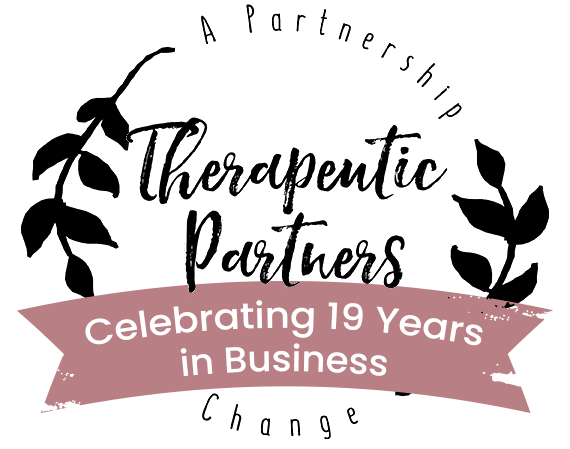
Self-compassion can at times feel egotistical especially if you are a recovering people pleaser and fixer-of-all like I am, but it could not be further from the truth. Self-compassion is not being selfish, self-centered, or focused only on one’s self. Self-compassion is learning to love yourself, your body, your cracks, your shame, your shadows, and all. Self-compassion is the ability to self soothe and become okay with what is. So many times we devalue the power of self-compassion and how it can impact us on the inside so as to view ourselves and the world around us with a little more humane tenderness. In Kristin Neff’s article, The Five Myths of Self Compassion, she states:
“What distinguishes self-compassion is that it goes beyond accepting our experience as it is and adds something more—embracing the experiencer (i.e., ourselves) with warmth and tenderness when our experience is painful.”
I started graduate school in 2012 when my youngest son was in 2nd grade to become a school counselor as well as a clinical therapist. My husband traveled extensively, and family time was scarce. My time more specifically was limited to the evenings after 9:00. It was quite the balancing act for me, but I was excited about it nonetheless. I had no idea that my world as I knew it was about to unravel. Within one year of beginning graduate school, my husband’s company was heading towards bankruptcy which put a significant strain on our marriage of 16 years. The grand finale, I discovered my husband had multiple affairs during our marriage. One of those affairs had gone on for years, and I would soon learn that it had resulted in an unplanned pregnancy. The stress was unbearable, and I could no longer manage my anxiety attacks as I had in the past. For years I had been able to manage my anxiety through meditation, running, and Xanax as needed. Although I considered the Xanax a gift, I struggled every time I took it despite the genuine need for I was fearful I would become dependent on it.
My foundation as I knew it was crumbling, and I was struggling to find my way out of the rubble. My nights were long, and my mornings came with debilitating anxiety attacks every single day. I could not go a day without crying and begging God to help me just get up off the floor. I cringe even now as I put my story in writing for the first time because I firmly believed I was an independent strong woman who could handle whatever came across my path of life and strong women shouldn’t need Celexa and Xanax to function, or so I thought. I had been raised to believe that you buck up and suck it up, though the roots of that internal strife are for another blog. Just functioning in my daily life was a challenge, and I was terrified that life would swallow me up and spit me out with no job, no home, and no light in a very long dark tunnel.
The truth is, life can be ugly. It can and will hurt us at times. Life will wound you and expose every shred of your insides, bleeding out all of your shadows. Then all we are left with is a choice, constrict and resist or let go and love what is. Thankfully in one of the darkest moments of my life, I was able to draw upon skills learned in my earlier years of therapy. I felt broken but I had the glue and knew how to use it, beginning with self-compassion, which led me to see that we are all whole and beautiful as we are, cracks and all. Furthermore, despite thinking my strength was faltering, I learned that my strength was my saving grace after all. I was growing stronger through my trials and tribulations, one of the many gifts of the pain I had suffered. I used to say that no one is ever broken, just broken open. Elizabeth Lesser, in her book How Difficult Times, Can Help Us Grow explains,
“Going beyond fear begins when we examine our fear: our anxiety, nervousness, concern, and restlessness. If we look into our fear, if we look beneath the veneer, the first thing we find is sadness, beneath the nervousness. Nervousness is cranking up, vibrating all the time. When we slow down, when we relax with our fear, we find sadness, which is calm and gentle. Sadness hits you in your heart, and your body produces a tear. Before you cry, there is a feeling in your chest and then, after that, you produce tears in your eyes. You are about to produce rain or a waterfall in your eyes and you feel sad and lonely and perhaps romantic at the same time. That is the first tip of fearlessness and the first sign of real warriorship“. (Lesser, Elizabeth. Broken Open: How Difficult Times Can Help Us Grow (p. 37). Random House Publishing Group. Kindle Edition. )
What I know to be true is that we are all on the struggle bus at times in our life: death, divorce, work, friendship, money, or whatever else you would like to fill in. We have all experienced moments that brought us to our knees and left us there raw and vulnerable, struggling to find our way. This is where self-compassion begins. To find that light within you and know that you are okay and no different than any of us. People fall and people get up. However, it is in the “how” we get up that we find our self-worth, our dignity, our strength, and maybe a little compassion that grows continuously larger and deeper like a sunflower whose roots grow deep into our earth while growing toward the light.
While I recognize that I am always working and improving who I am as a person, I do so now with more ease, more grace, and a lot of love and patience. By doing the work and continuing on my journey of becoming a School Counselor as well as a Clinical Therapist I finally see the light and it is bright and gleaming with hope. I now own my own home and live with my two sons who are 18 and 21. I was able to help get my son through NCSU which I never thought possible when my world as I knew it fell apart. I have a great job that is only 10 m from my home and I love the people I work with. I think that is in part due to the fact that I had to first love me, flaws and all. We are all human trying to figure life out and be sure to know you will fall down. But that is where you also have to find a way to start over and rebuild on the foundations of self-love and self-compassion. Here are some tools I utilize and find to be helpful. Please know you have to do what works for you and alter as you go along so that it works for you not against you.
I will end this with some tools you can utilize to build self-compassion as well as resources you can utilize to help one along the way. One way to start forming kind-heartedness for yourself is with affirmations. Choose whatever sentence that you need the most at that moment or for the next couple of weeks. My favorite is I am enough. Simple but so true and yet so hard to wrap our brains around. Not, I am not skinny enough, I am not tall enough, rich enough. I am enough! Write it on your mirror in the bathroom, on a notepad, and put it on your computer. Wherever you need to feed your brain with healthier thoughts. Which leads to my next tool. Watch your thoughts which is hard therefore practice meditation. Mindful meditation is a good way to recognize the negative incessant self-talk so you can practice replacing those thoughts with a more compassionate supportive response. If you are seeing a therapist they can help you with this area. If you are not there are many books and meditation apps that can help you get started. Which leads to some books that I find to be helpful. Think of it as putting your brain on a diet and feeding your thoughts with lots of support, love, and affirmation. A few of my favorite books are The Untethered Soul: The Journey Beyond Yourself By Michael Singer. Self-Compassion by Kristin Neff along with her workbook. How to Be Nice to Yourself: The Everyday Guide to Self-Compassion: Effective Strategies to Increase Self-Love and Acceptance by Laura R. Silberstein-Tirch. Research the various types of guided meditations out there and find one that works for you. You can listen to something right before bed while laying down, on a walk, driving to work, wherever you can fit it in that works for you. But most of all whatever you choose to do, stick with it for you are worth the effort.
If you’re looking for therapy in Holly Springs, NC, or therapy in Raleigh, NC, please make an appointment today and we look forward to working with you!



